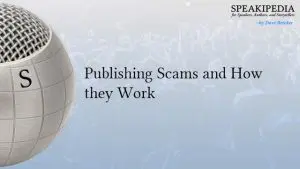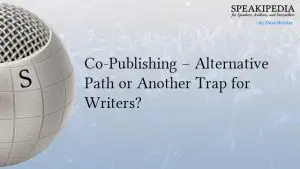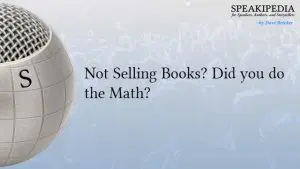Here’s a useful definition. Think of a publisher as an individual or entity that assumes the financial risk for a book. A publishing house buys your manuscript, pays you a small advance against hope for royalties, and earns a profit only if they sell thousands of books. They assume the risk, they reap the rewards.
A self -publisher hires an editor, contracts with a typesetter, and engages a cover designer. They establish a relationship with a distributor and hope to cover at least their costs of production. They assume the risk. They reap the rewards. In between these models lies the vanity publisher. Vanity publishers charge you for editing and design, and that’s fine. You’d have to pay for these services anyway.
And they handle printing and distribution and collections, et cetera. Well, that sounds great. What’s the problem? They also set the price and they take a cut of the profits without assuming any risk. Remember our definition, a publisher is an individual or entity that assumes the financial risk for a book. Paying someone to be your publisher is like paying someone to take a vacation for you so you can stay home and work.
Seek a publishing contract if that makes sense, or self -publish if that’s the best route for you. Do some homework on how to make that decision without silly preconceptions that big publishers are somehow more prestigious or legitimate, or that self -publishing is not. And stay away from vanity presses who want to pose as your publisher and skim your cream without sharing any of the risks.





